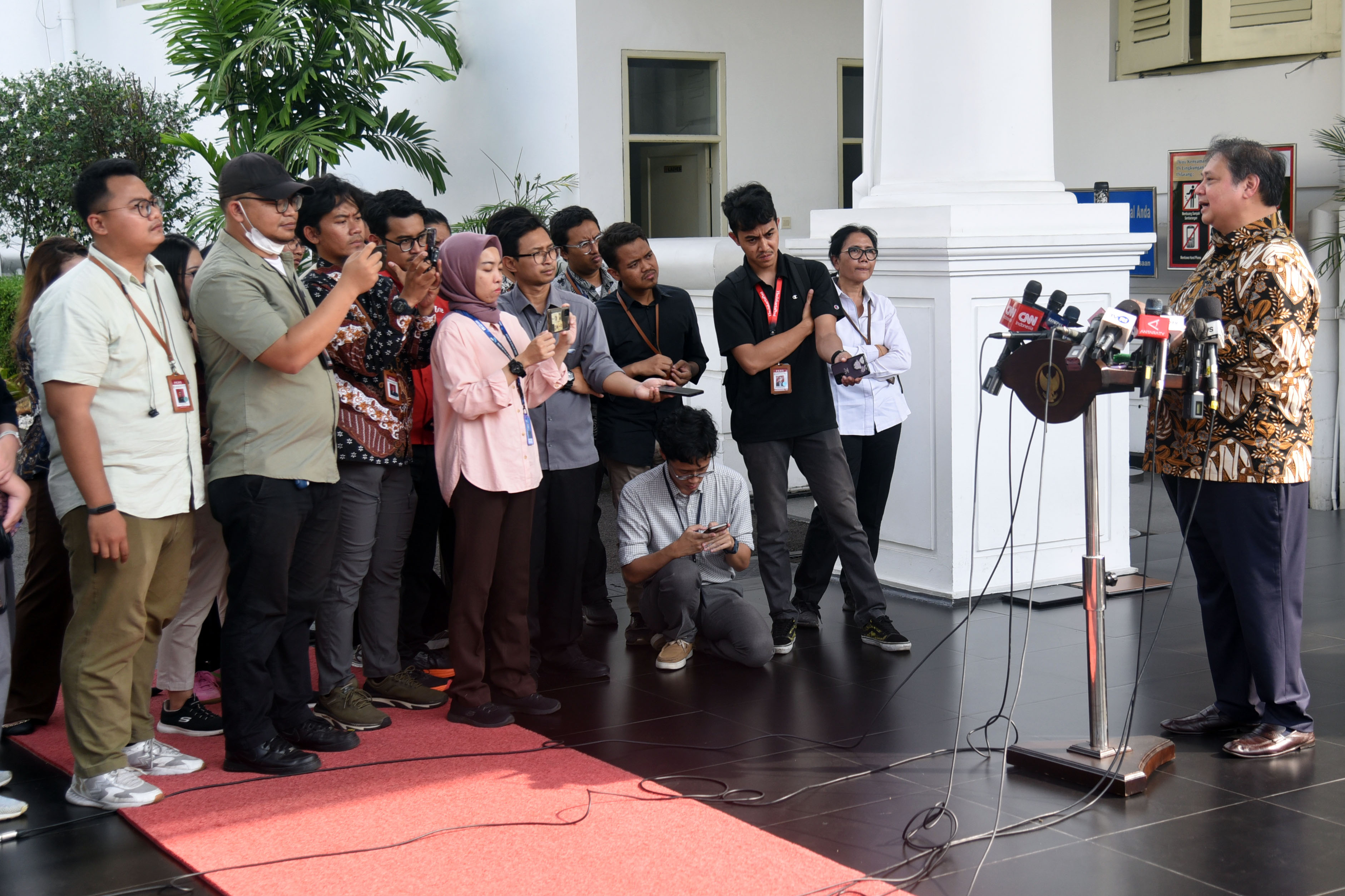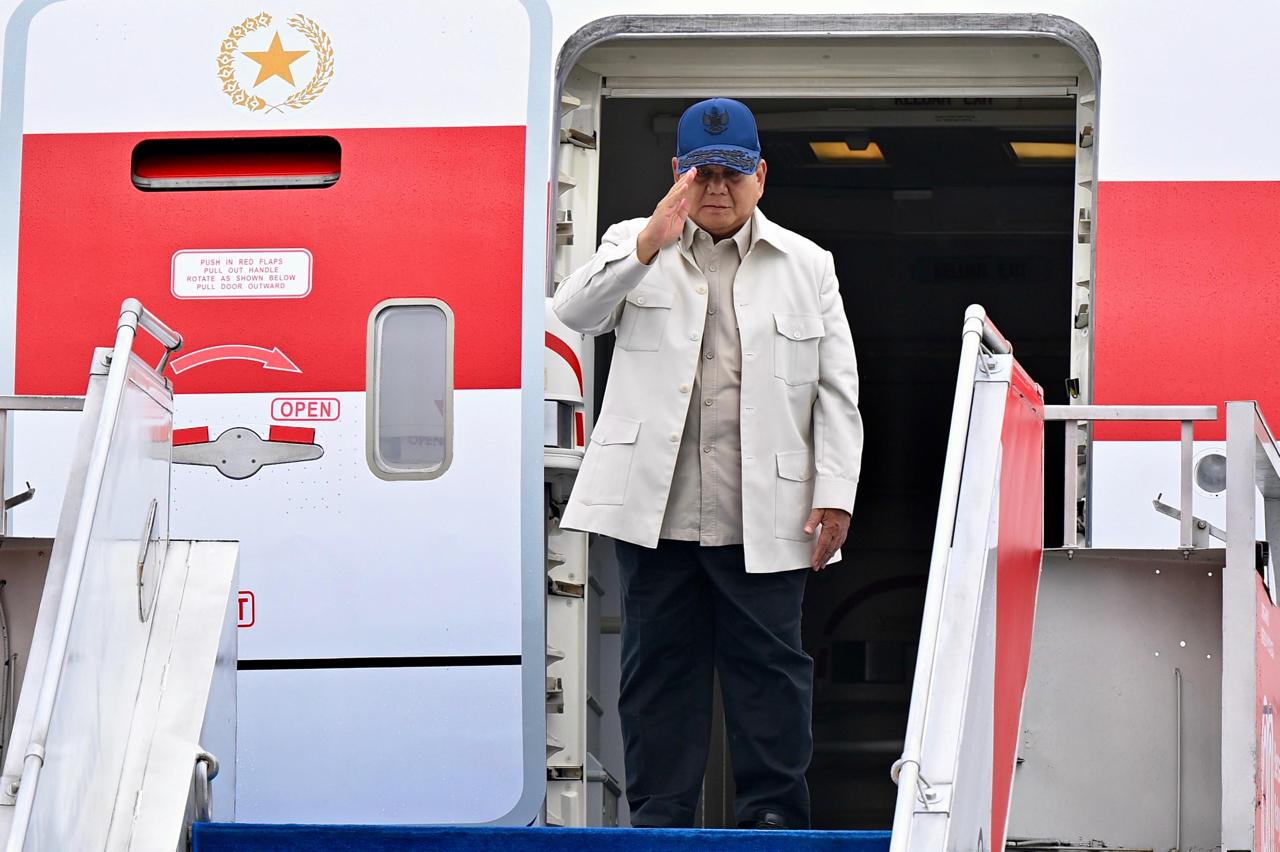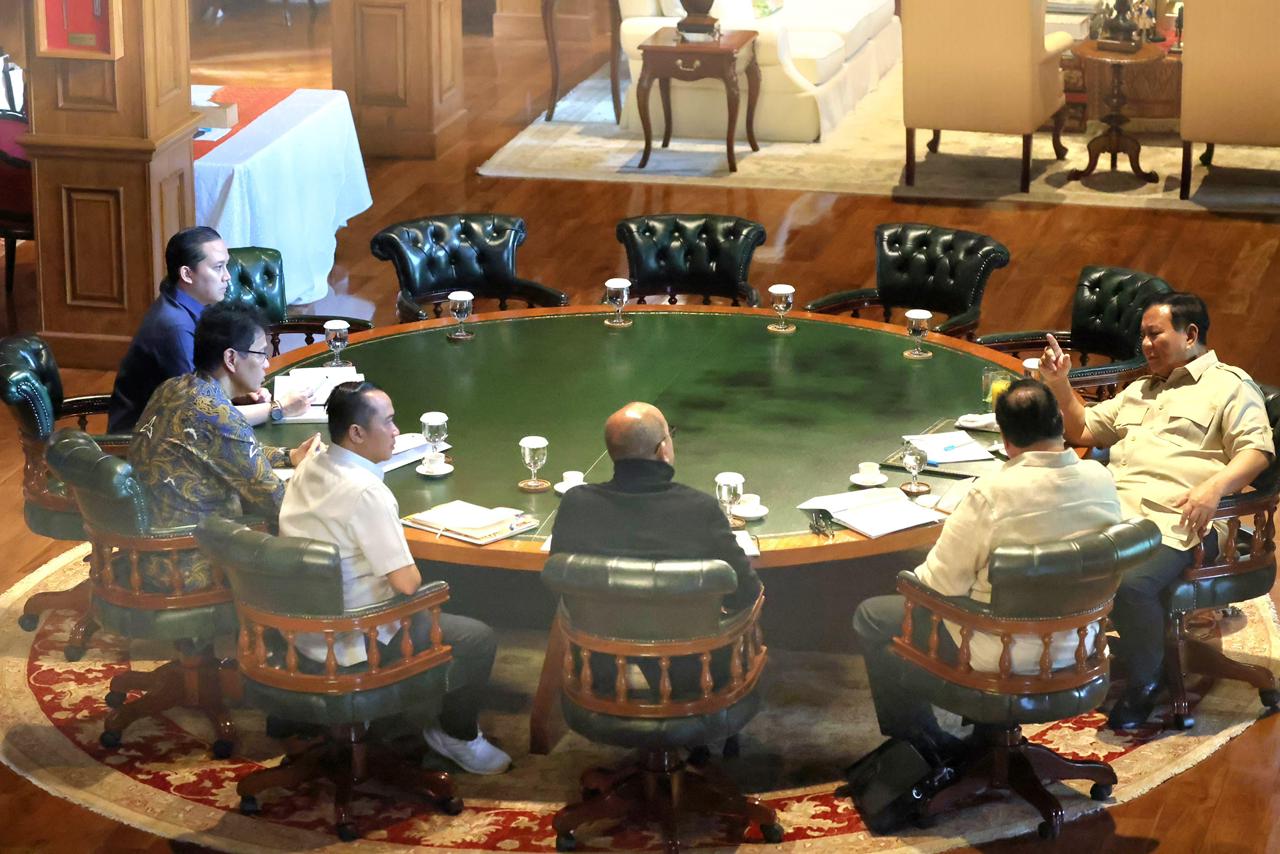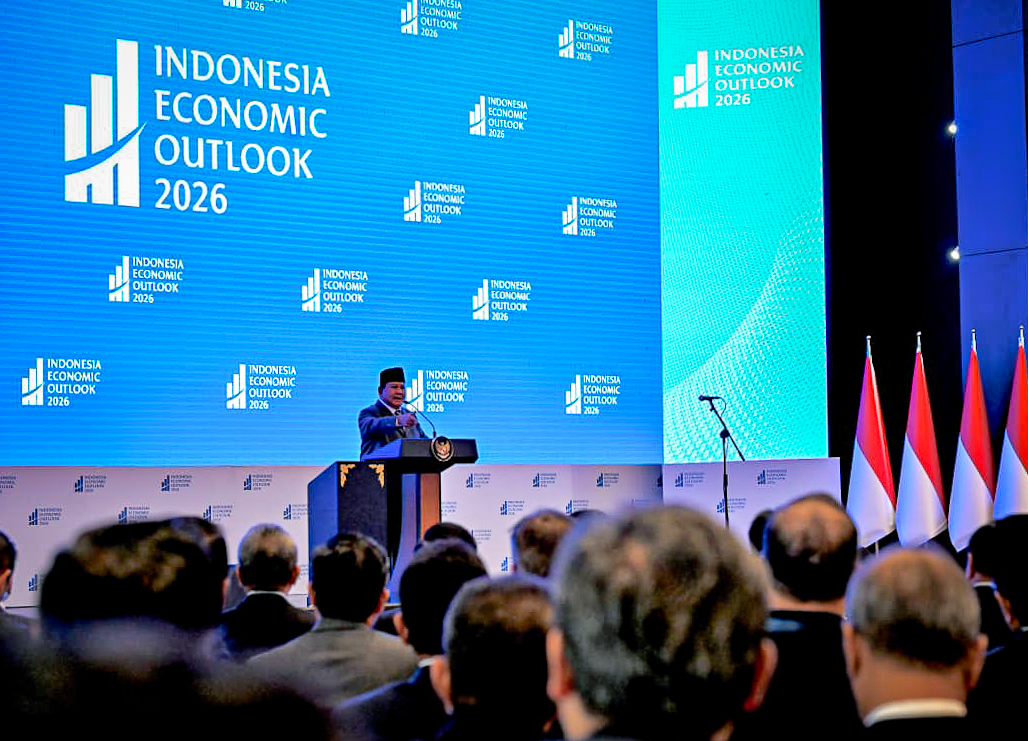Gov’t Upbeat Indonesia’s Economic Fundamentals Remain Strong Amid Global Uncertainty

Coordinating Minister for Economic Affairs Airlangga Hartarto delivers a press statement following plenary cabinet meeting on presidential directives and current economic conditions, at the State Palace, Jakarta, Monday (06/24). (Photo by: PR of Cabinet Secretariat/Rahmat)
The national economy is facing a long trend with downside risks due to geopolitical issues, including tensions in the Middle East, the Russia-Ukraine conflict, and the United States-China trade feud which led to stronger US dollar and high interest rates in developed countries that impacted the depreciation of many currencies, Coordinating Minister for Economic Affairs Airlangga Hartarto has stated.
“Global economic uncertainty persists as inflation remains high and the expected interest rate cuts by the Fed have not occurred. The escalation continues and drives investors to aim for US dollar and gold assets, resulting in the depreciation of exchange rates worldwide, including Indonesia’s rupiah and Japan’s yen,” the Minister said in his press statement at the State Palace, Jakarta, Monday (06/24).
According to the Minister, several commodities that have experienced price hike in the range of 5 to 15 percent, such as Crude Palm Oil (CPO), nickel, and copper are expected to boost the value of Indonesia’s exports.
In the first quarter of 2024, the country’s economy grew by 5.11 percent with the Manufacturing Purchasing Managers’ Index (PMI) showing positive expansion for 33 consecutive months stood at above 50.
“One positive development is that Indonesia’s competitiveness, based on data from the Institute for Management Development (IMD), has improved significantly, jumping from 34th to 27th among 67 countries. This improvement is largely due to the domestic economy and government institutions which have benefited from the Job Creation Law,” Airlangga said.
“This improvement was driven by the Job Creation Law, which enhanced the investment climate and simplified recruitment and labor dispute resolution. In the external sector, we are seeing capital outflows due to the high-interest treasury bills issued by the United States,” he explained.
The Minister also pointed out that the President urge the extension of credit restructuring, initially set to conclude in March 2024 due to the COVID-19 pandemic, until 2025 to ease the burden on banks.
“This proposal will be submitted to the Financial Services Authority (OJK) through the Financial System Stability Committee (KSSK) and the Governor of Bank Indonesia, suggesting the postponement until 2025 to reduce banks’ provisions for credit losses,” he added.
Furthermore, the Minister said that Indonesia’s economic fundamentals are relatively stronger compared to those of other countries with the central bank’s policy interest rate at 6.25 percent, inflation at 2.84 percent, and a current account balance of 0.64 percent.
“This is much better than in various countries, including Malaysia and Brazil. Similarly, the fiscal balance and foreign exchange reserves are also stronger,” the Minister said, adding that the President also instructed him to maintain communication with the president-elect’s team regarding the 2025 State Budget Draft.
“Minister of Finance earlier conveyed macroeconomics-related matters being prepared in the 2025 State Budget. As for the budget cycle and its details, it is currently under discussion with the People’s Representative Council (DPR), and it is hoped that the House’s deliberations will proceed smoothly,” he stressed.
On that occasion, Airlangga underscored that for the 2025 State Budget Draft, the Government aims for economic growth between 5.1 to 5.5 percent, with inflation expected to range from 1.5 to 3.5 percent. The state revenues are targeted at 12.3 to 12.36 percent of gross domestic products (GDP), while state expenditure is projected to be between 14.59 to 15.18 percent of the GDP, resulting in a budget deficit ranging from 2.29 to 2.82 percent. Oil prices are projected to remain between US$75-80 per barrel, with oil production expected to range from 580 to 605 million barrels and natural gas production from 1,003 to 1,047 million barrels per day.
“We aim for the poverty rate to be between 7% and 8%, with extreme poverty close to 0%. Open unemployment should range from 4.5% to 5%. The Gini coefficient is projected to be between 0.379 and 0.382, while the human capital index is targeted at 0.56,” the Minister remarked. (FID/ABD) (RIF/EP)








